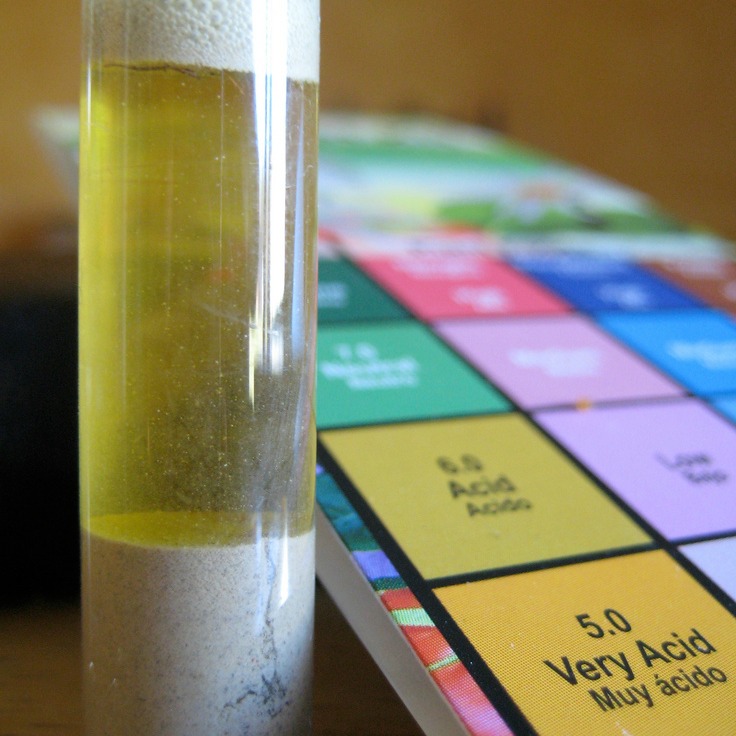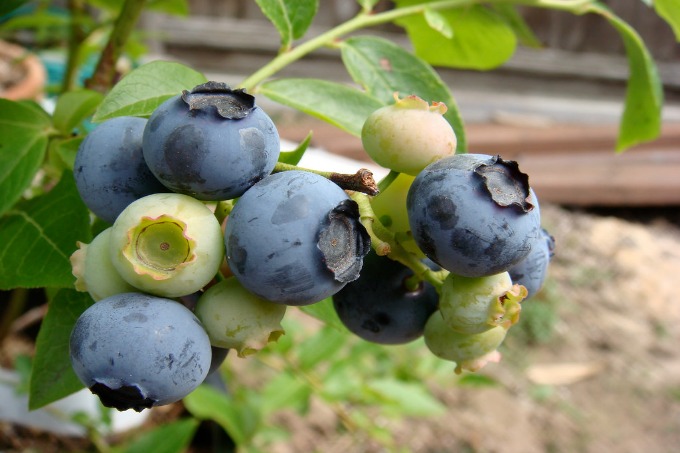July 10th is National Pick Blueberries Day! Read this article to help you decide whether to grow and “pick” your own in Utah or just “pick” them up at the grocery store.
Perhaps you have heard about all of the health benefits of blueberries like antioxidants and Vitamin C and would like to start growing them. Residents here, however, may find them to be quite a challenge to raise successfully. Why would we have a hard time growing blueberries in Utah?

Blueberry Image by Fixed in Silver under a Flickr Creative Commons Attribution – ShareAlike License
What Kinds of Conditions Do Blueberries Need?
Blueberries belong to the Ericaceae, or heath family. Other members that you are likely familiar with are azaleas, rhododendrons, cranberries, and heather. As a general rule, they need acidic conditions in order to grow and thrive.
Conditions in Utah, however, are quite the opposite. In many areas, the soil registers on the alkaline side of the pH scale, as does the water. If you tried to plant blueberry bushes straight into your garden without any adjustments, they might try to valiantly struggle along for a while, but won’t be able to grow well and will likely just die in the end.
There’s also the matter of the texture of our soil. Blueberries like to have looser/coarser soils like sand since they form a network of thinner roots instead of a large one. Many areas around here are the finer clays that would make it harder for the bushes to properly spread out their roots and get all of the water and nutrients that they would need for success.

Soil pH test Image by michaelstyne under a Flickr Creative Commons Attribution – ShareAlike License
So How CAN You Grow Blueberries in Utah?
You would need to acidify your soil in preparation for planting these and plan on the possibility of needing to repeat the process in the future. Start by buying a pH test kit or send off a sample to the Extension service to gauge how much change would be needed.
The easiest way would be to get a large container that you could fill with acidified potting soil. You could also try preparing special planting beds with soil that has had materials like peat worked into it to make it more acid. Over time, though, it will continue to move back towards alkaline here in Utah (especially if you use untreated water) and you will have to fuss over it.
University of Utah’s Extension service offers a more extensive discussion on the specific ways that you can work on acidifying soil and water found in Utah, along with the challenges that can come along with it.

Image by words under a Flickr Creative Commons Attribution – NoDerivatives License
Is It Worth It?
I am always up for a challenge and like to see if I can grow plants that are a bit more work. You may feel that way, too. However, if you’re just wanting to enjoy some fresh blueberries, it would be easier to concede in this case and buy some at the local store, saving your space for all of the other fruit trees, shrubs and plants that do just fine in Utah.